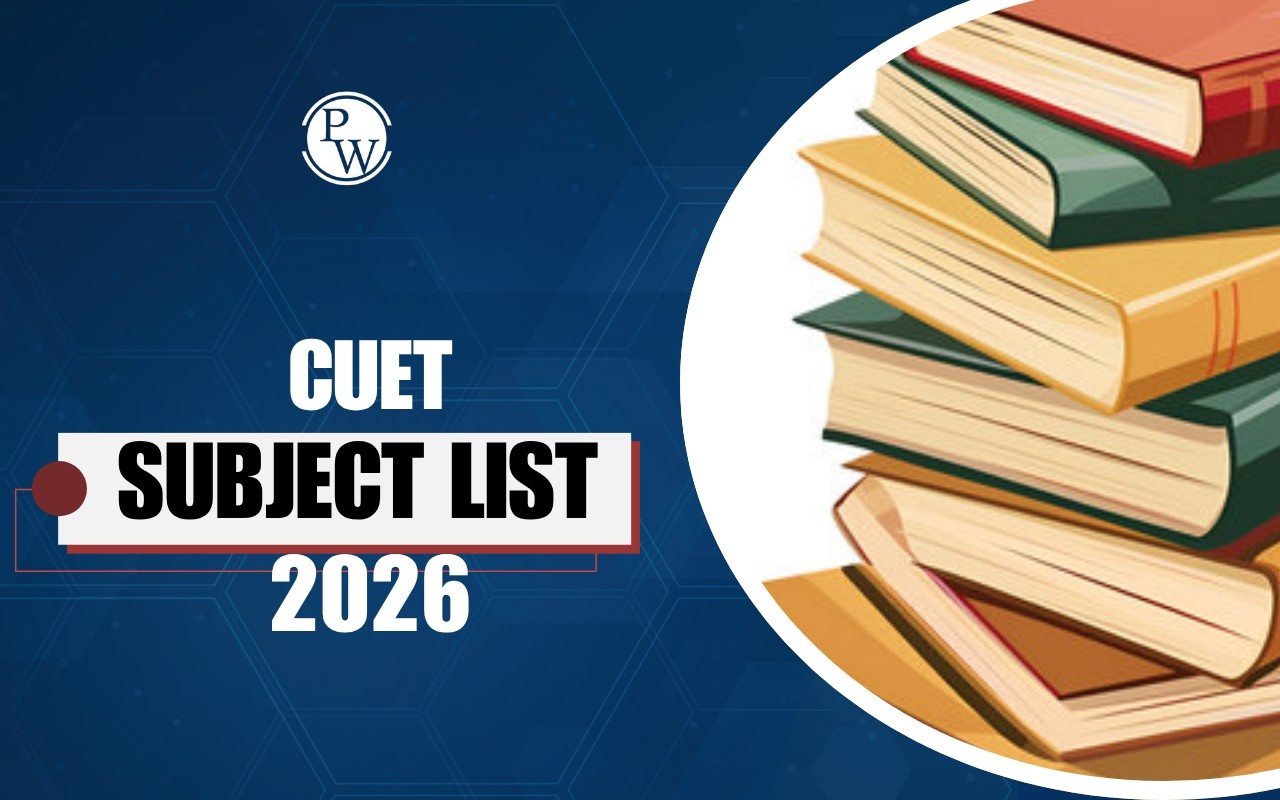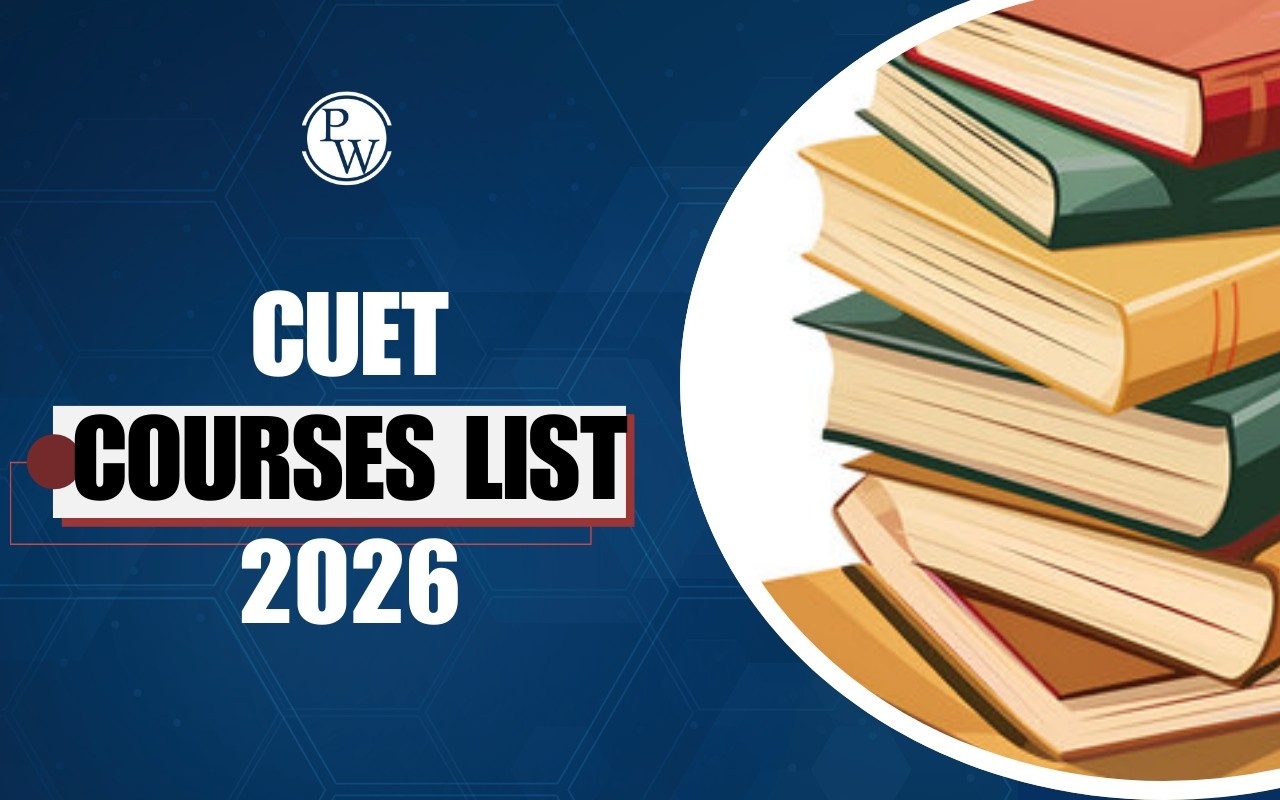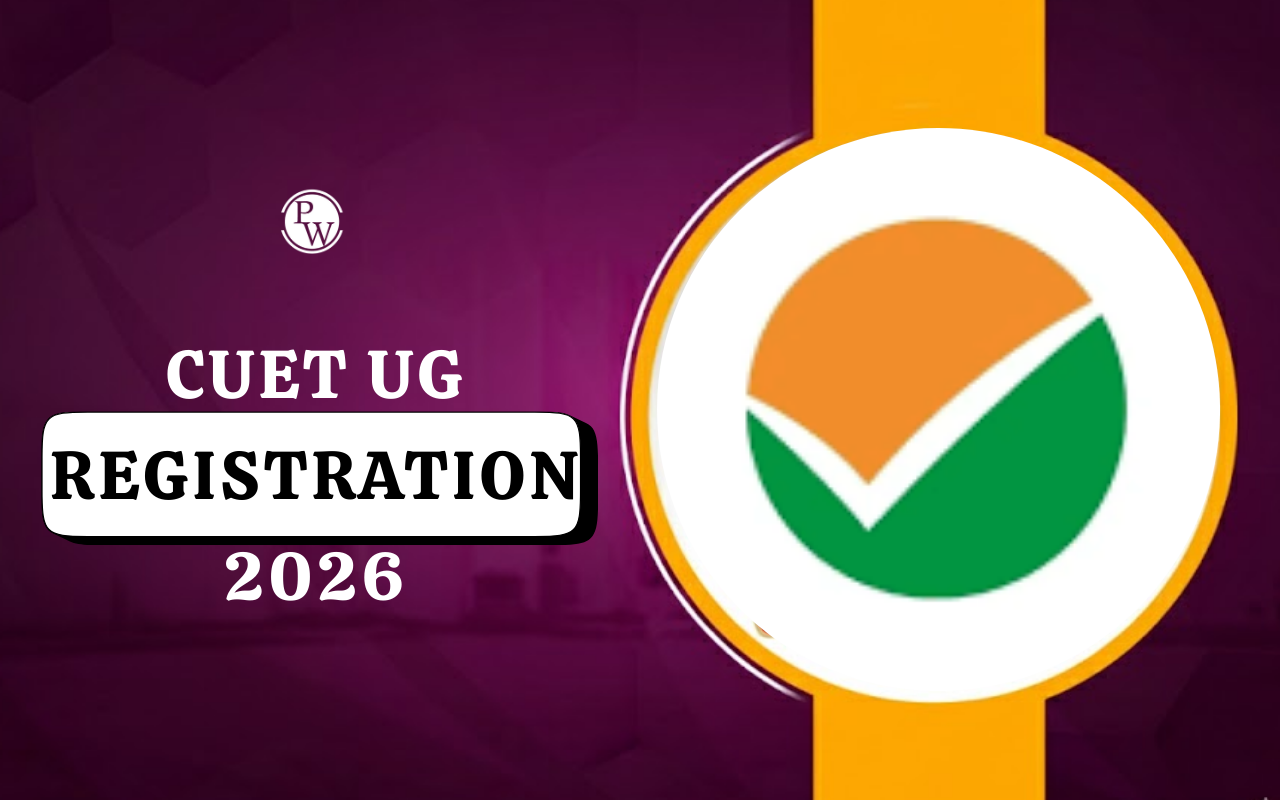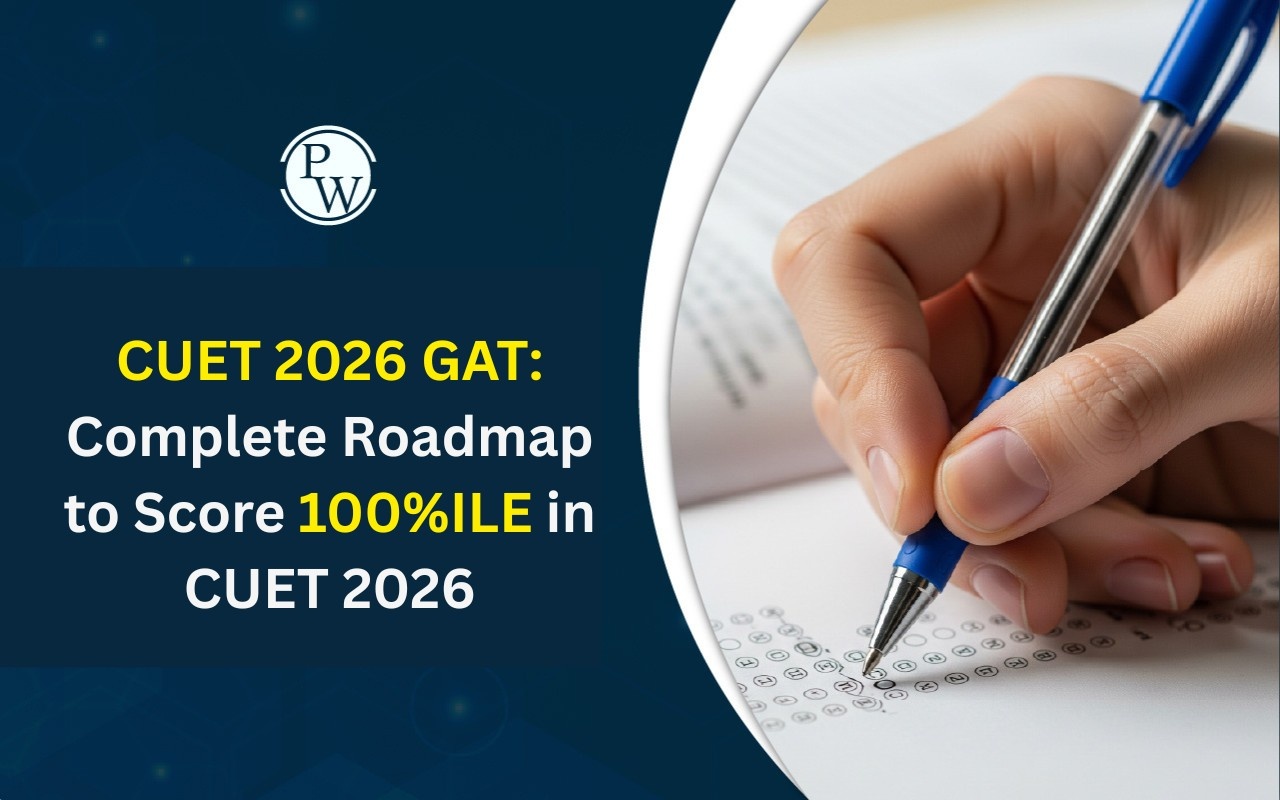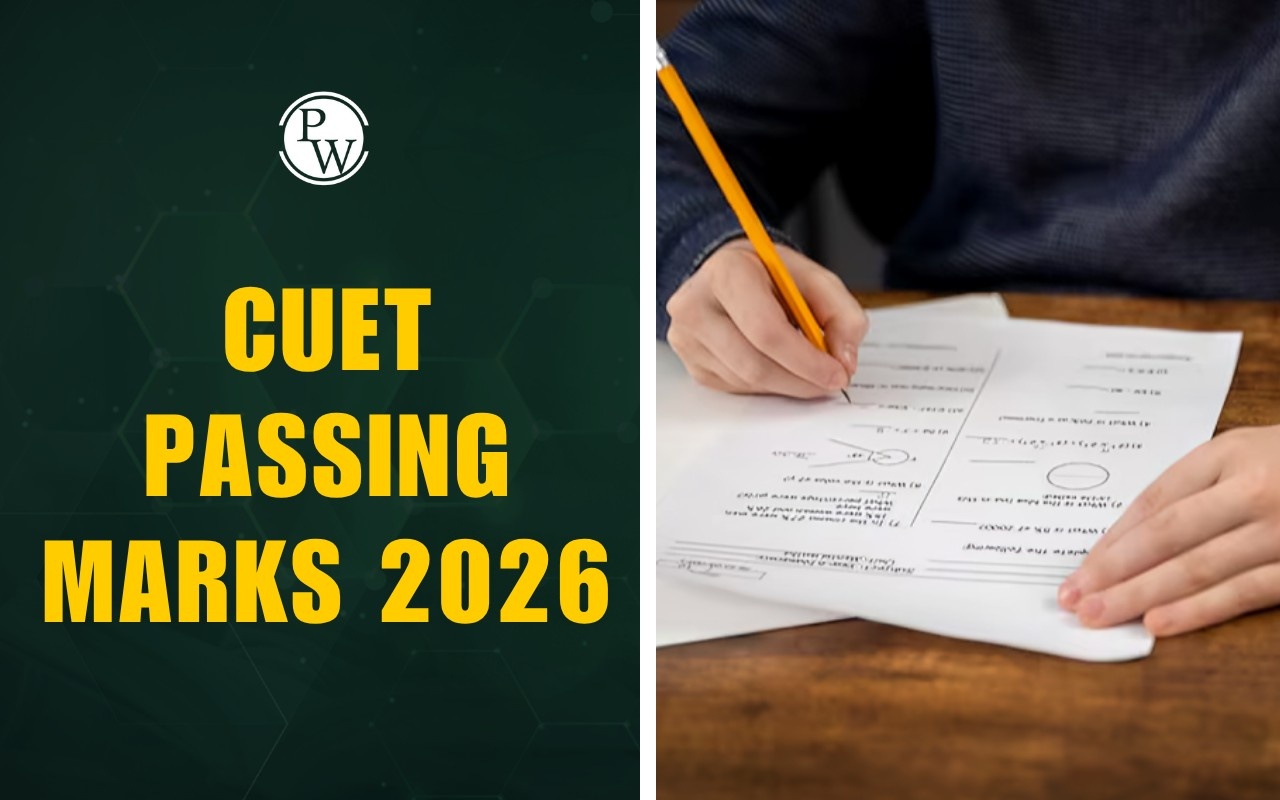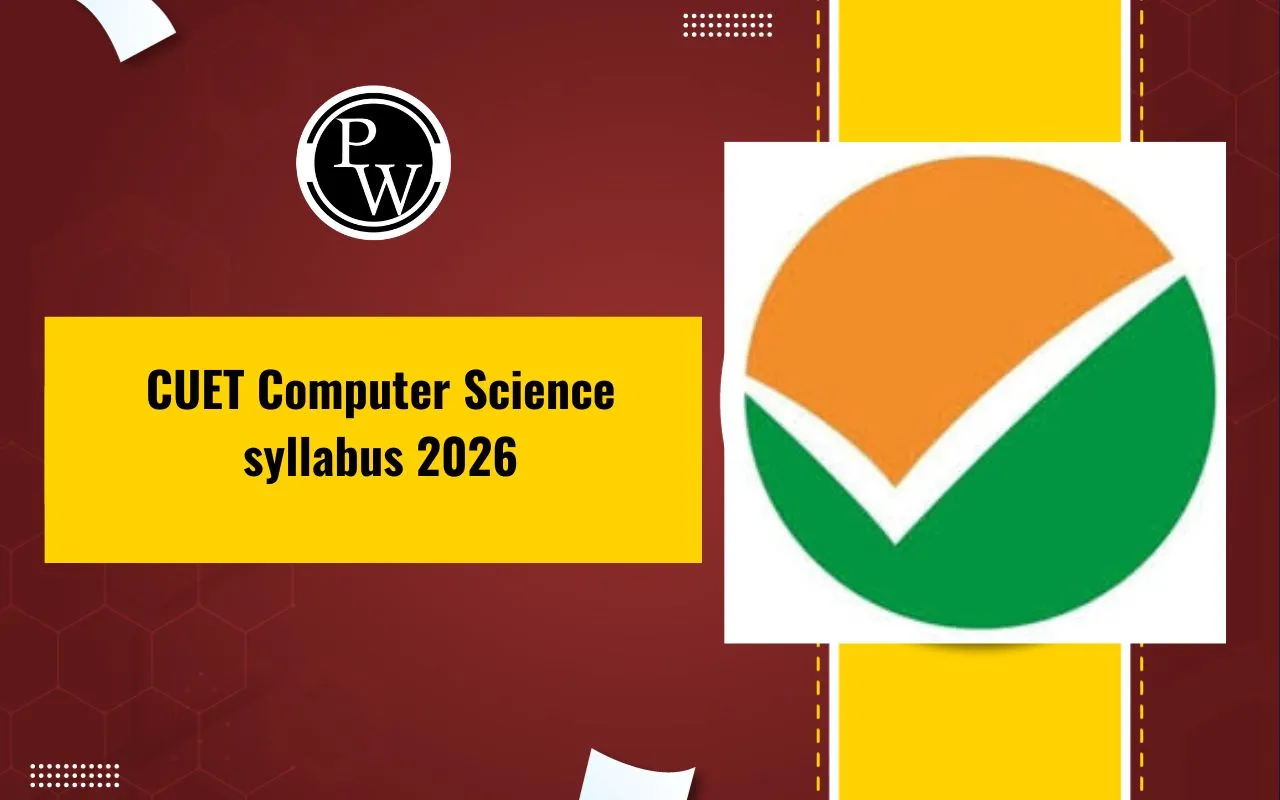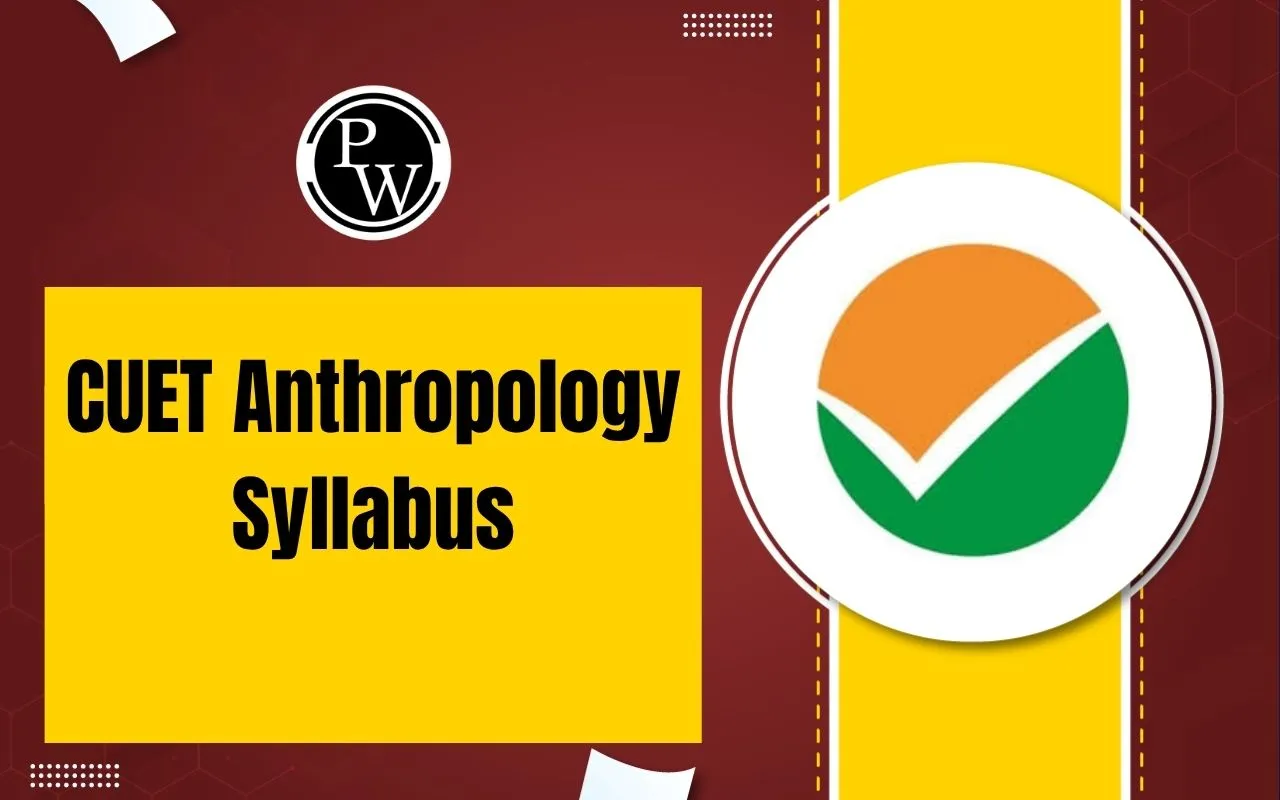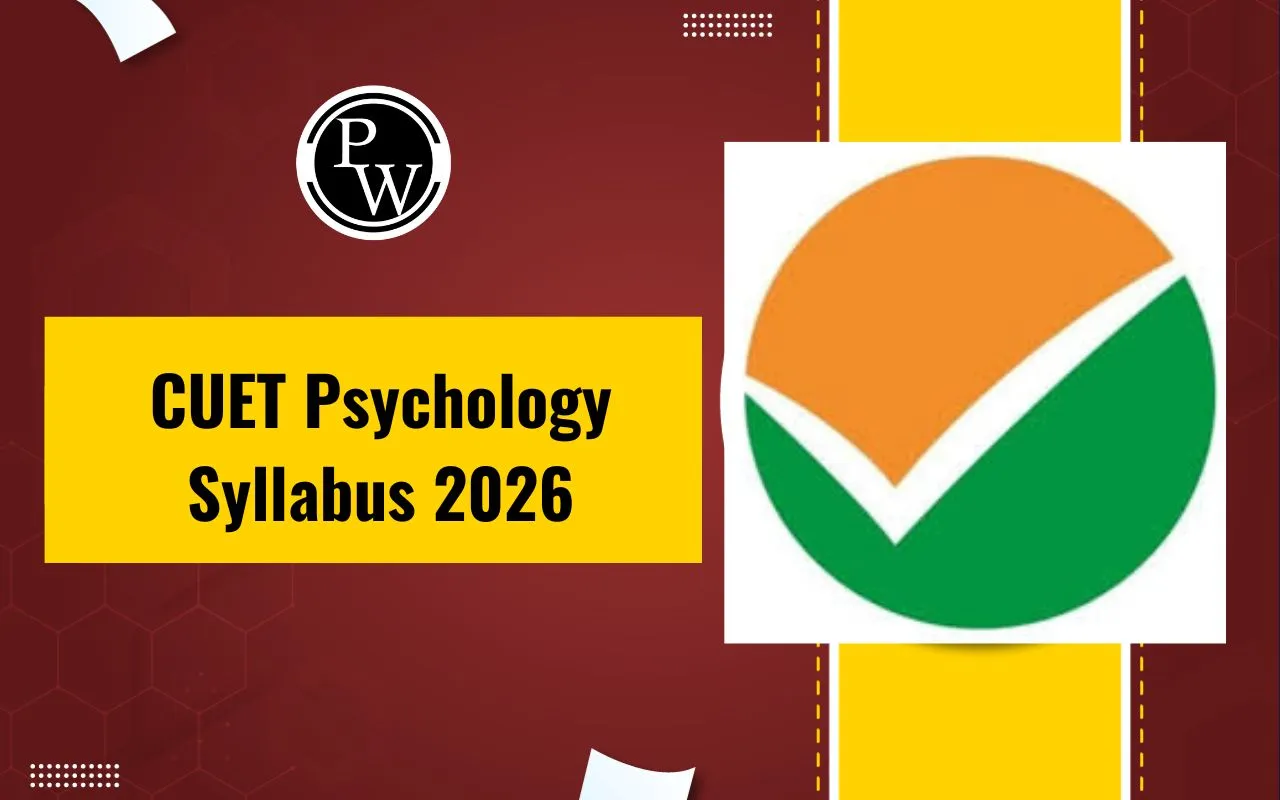
CUET Political Science Syllabus 2026 : NTA is expected to release the CUET Political Science Syllabus 2026 PDF soon on the official website of CUET NTA. Meanwhile, candidates can refer to the CUET Political Science Syllabus 2025 PDF available in this article for their preparation. The CUET UG Political Science syllabus NTA is based on the Class 12 NCERT curriculum and includes a wide range of topics that explore both Indian and global political systems. These topics are designed to test students' conceptual understanding and awareness of political developments.
The CUET Political Science syllabus class 12 includes important chapters such as The Era of One Party Dominance, Nation Building and Its Problems, Politics of Planned Development, India’s External Relations, Crisis of the Constitutional Order, Cold War Era in World Politics, and Globalisation and Its Critics, among others. Students are advised to go through the detailed syllabus thoroughly to plan their preparation effectively.
CUET Political Science Syllabus 2025 PDF
Candidates who wish to appear in CUET UG 2026 exam with Political Science as a domain-specific subject can download CUET Political Science Syllabus PDF in English in the table below.
|
CUET Political Science Syllabus 2025 PDF |
|
|
Subject |
|
|
CUET Political Science Syllabus |
|
CUET Political Science Important Topics 2026
CUET Political Science Syllabus 2026 is divided into 2 sections i.e., Politics in India Since Independence, and Contemporary World Politics. Candidates can check the section-wise CUET Political Science Syllabus Important Topics in the table below.
|
CUET Political Science Chapter-wise Syllabus |
||
|
CUET Political Science Units |
CUET Political Science Syllabus Topics |
CUET Political Science Syllabus Subtopics |
|
Politics in India Since Independence |
The era of One-Party Dominance |
First three general elections nature of Congress dominance at the national level, uneven dominance at the state level coalitional nature of Congress Major opposition parties |
|
Nation-Building and Its Problems |
Nehru’s approach to nation-building, in terms of Legacy of partition, the challenge of ‘refugee’ resettlement, the Kashmir problem Organization and reorganisation of states Political conflicts over language. |
|
|
Politics of Planned Development |
Five- year plans expansion of state sector rise of new economic interests Famine and suspension of five-year plans Green revolution and its political fallouts |
|
|
India’s External Relations |
Nehru’s foreign policy Sino-Indian war of 1962 Indo-Pak war of 1965 and 1971 India’s nuclear programme shifting alliances in world politics |
|
|
Challenge to and Restoration of Congress System |
Political succession after Nehru Non-Congressism and electoral upset of 1967 Congress split and reconstitution Congress’ victory in 1971 Politics of ‘garibi hatao’ |
|
|
Crisis of the Constitutional Order |
Search for ‘committed’ bureaucracy and judiciary. Navnirman movement in Gujarat Bihar movement Emergency: context, constitutional and extra-constitutional dimensions, resistance to emergency. 1977 elections and the formation of the Janata Party Rise of civil liberties organisations. |
|
|
Regional Aspirations and Conflicts |
Rise of regional parties Punjab crisis and anti-sikh riots of 1984 The Kashmir situation Challenges and responses in the North East |
|
|
Rise of New Social Movements |
Farmers’ movements Women’s movement Environment Development-affected people’s movements Implementation of Mandal Commission report and its aftermath |
|
|
Democratic Upsurge and Coalition Politics |
Participatory upsurge in the 1990s Rise of the JD and the BJP The increasing role of regional parties and coalition politics UF and NDA governments Elections 2004 and UPA government. |
|
|
Recent Issues and Challenges |
Challenge of and responses to globalisation New economic policy and its opposition Rise of OBCs in North Indian politics Dalit politics in the electoral and non-electoral arena Challenge of communalism Ayodhya dispute Gujarat riots |
|
|
Contemporary World Politics |
Cold War Era in World Politics |
- Emergence of two power blocs after the Second World War - Arenas of the Cold War - Challenges to Bipolarity - Non-Aligned Movement - the quest for new international economic order - India and the cold war |
|
Disintegration of the ‘Second World’ and the Collapse of Bipolarity |
- New entities in world politics: Russia, Balkan states, and, Central Asian states - Introduction of democratic politics and capitalism in post-communist regimes - India’s relations with Russia and other post-communist countries. |
|
|
US Dominance in World Politics |
- Growth of unilateralism: Afghanistan - First Gulf War - Response to 9/11 and attack on Iraq - Dominance and challenge to the US in economy and ideology - India’s renegotiation of its relationship with the USA. |
|
|
Alternative Centres of Economic and Political Power |
- Rise of China as an economic power in post - Mao era - Creation, and expansion of European Union, ASEAN. - India’s changing relations with China |
|
|
South Asia in the Post-Cold War Era |
- Democratisation and its reversals in Pakistan and Nepal - Ethnic conflict in Sri Lanka - Impact of economic globalisation on the region - Conflicts and efforts for peace in South Asia - India’s relations with its neighbours. |
|
|
International Organisations in a Unipolar World |
- Restructuring and the future of the UN - India’s position in the restructured UN - Rise of new international actors - new international economic organisations, NGOs. - Accountability & democracy of new institutions of global governance? |
|
|
Security in the Contemporary World |
- Traditional concerns of security and politics of disarmament - Non-traditional or human security: global poverty, health, and education. - Issues of human rights and migration. |
|
|
Environment and Natural Resources in Global Politics |
- Environment movement and evolution of global environmental norms - Conflicts over traditional and common property resources - Rights of indigenous people - India’s stand-in global environmental debates |
|
|
Globalisation and Its Critics |
- Economic, cultural and political manifestations. - Debates on the nature of consequences of globalisation - Anti-globalization movements - India as an arena of globalisation and struggles against it. |
|
CUET Political Science Exam Pattern 2026
Candidates must go through CUET Exam Pattern before starting the exam preparation in the table below. The question paper will include 50 questions from Political Science and candidates need to answer only 40 out of them.
|
CUET Political Science Exam Pattern 2026 |
|
|
Features |
Details |
|
Number of questions |
50 |
|
Number of questions to be attempted |
40 |
|
Type of question |
Multiple Choice Question (MCQ) |
|
CUET Business Studies exam duration |
45 minutes |
|
CUET Political Science marking scheme |
+5 for each correct answer -1 for each incorrect answer |
Study Materials for CUET Political Science Syllabus 2026
Candidates who are preparing for CUET UG 2026 exam with Political Science as the domain-specific subject must refer to the best study materials for the preparation. Candidates can check Physics Wallah’s store to access the best study materials for CUET UG exam preparation.
-
CUET Books by Physics Wallah
-
CUET Question Banks by Physics Wallah
-
CUET Mock Test by Physics Wallah
-
CUET Political Science by Team Drishti
-
NTA CUET (UG) Political Science with 20 Solved Practice Papers by VK Global Publications Pvt Ltd
-
Go To Guide for CUET (UG) Political Science with 10 Practice Sets by Disha Experts
-
NTA CUET (UG) 10 Mock Test Papers for Political Science by Oswaal Editorial Board
CUET Political Science preparation strategy 2026
Candidates preparing for CUET UG Political Science exam must follow the below preparation tips.
-
Know Key Theories and Concepts: Focus on important theories like realism, liberalism, and constructivism. Understand their main ideas and key thinkers associated with them.
-
Study Major Political Events: Review significant events in Indian and global politics, like the independence movement, major elections, and international treaties. Know their impacts and implications.
-
Familiarize with Political Systems: Understand different political systems (democracy, authoritarianism, etc.) and their features. Compare and contrast various political structures.
-
Read Political Philosophy: Get a grasp on key political philosophers like Plato, Aristotle, Machiavelli, and modern thinkers. Know their main ideas and contributions to political thought.
-
Analyze Current Affairs: Stay updated on current political events. Read newspapers and follow political news to understand real-world applications of political theories.
-
Understand the Indian Constitution: Focus on the key features, important articles, and fundamental rights. Knowing landmark Supreme Court cases can also be beneficial.
-
Practice Map Work: Be familiar with political maps, including state boundaries and major political regions. This can help with questions related to geography and politics.
-
Review Political Terminology: Create a glossary of important political terms (e.g., sovereignty, federalism, secularism). Knowing these will help you understand questions better.
CUET Political Science Syllabus 2026 FAQs
What are the topics included in CUET Political Science Syllabus?
What is the total number of questions in the CUET Political Science section?
What are the most important topics in CUET Political Science Syllabus?
What is the procedure to download the CUET Political Science Syllabus 2026 PDF?

